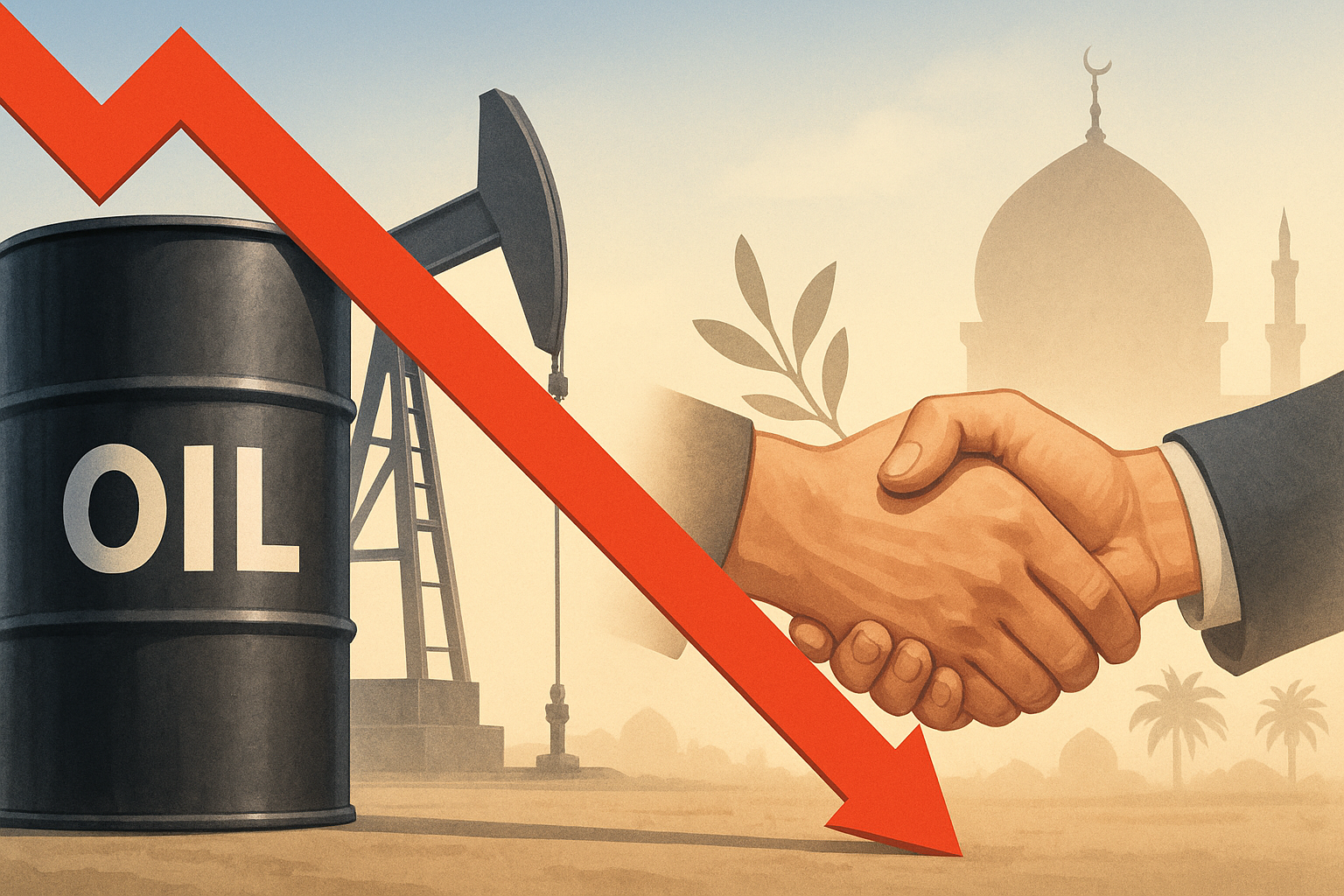In a surprising development, oil prices dropped sharply today as diplomatic efforts appeared to defuse tensions in key Middle Eastern hotspots. This unexpected turn highlights the complex relationship between geopolitics and energy markets - and offers potential relief for inflation-weary consumers.
The global economic landscape continues to evolve in unpredictable ways. Recent diplomatic breakthroughs in the Middle East have caught many analysts off guard, prompting a reassessment of risk premiums in oil markets.
Brent crude fell nearly 3.5%, dipping below $80 per barrel, while WTI crude dropped even more dramatically, shedding over 4%. This decline reflects growing market confidence that supply disruptions may be less likely than previously feared.
The ripple effects of lower oil prices extend far beyond energy markets. For major oil importers like India, Japan, and much of Europe, cheaper energy could provide an economic boost. Emerging markets - often disproportionately affected by energy price shocks - stand to benefit significantly if prices remain subdued.
"This de-escalation couldn't have come at a better time for the global economy," energy analyst Dr. Paul Carter told me yesterday. "With inflation pressures still lingering, lower energy costs provide welcome relief."
Market strategist Lisa White offered a more cautious perspective: "We've seen these diplomatic breakthroughs before, only to watch tensions flare up again. Smart investors aren't removing geopolitical risk premiums entirely."
Several factors are driving the current oil price decline. Beyond the diplomatic developments, there are concerns about Chinese demand growth slowing and U.S. production continuing to exceed expectations. The interplay between these supply-demand fundamentals and geopolitical risk creates a complex picture.
As we move forward, investors should keep a close eye on both diplomatic channels and key energy data points. OPEC+ decisions, U.S. inventory reports, and demand indicators from major economies will shape oil's trajectory in the coming months.
In my experience covering energy markets, price declines like these often present both opportunities and risks. Energy stocks - many of which have already priced in higher oil prices - may face headwinds. Meanwhile, sectors that benefit from lower energy costs (think transportation, manufacturing, and consumer discretionary) could see tailwinds.
The bottom line? While today's oil price drop is welcome news for consumers and many businesses, the energy market remains notoriously volatile. Don't be surprised if this storyline takes another unexpected turn in the weeks ahead.
